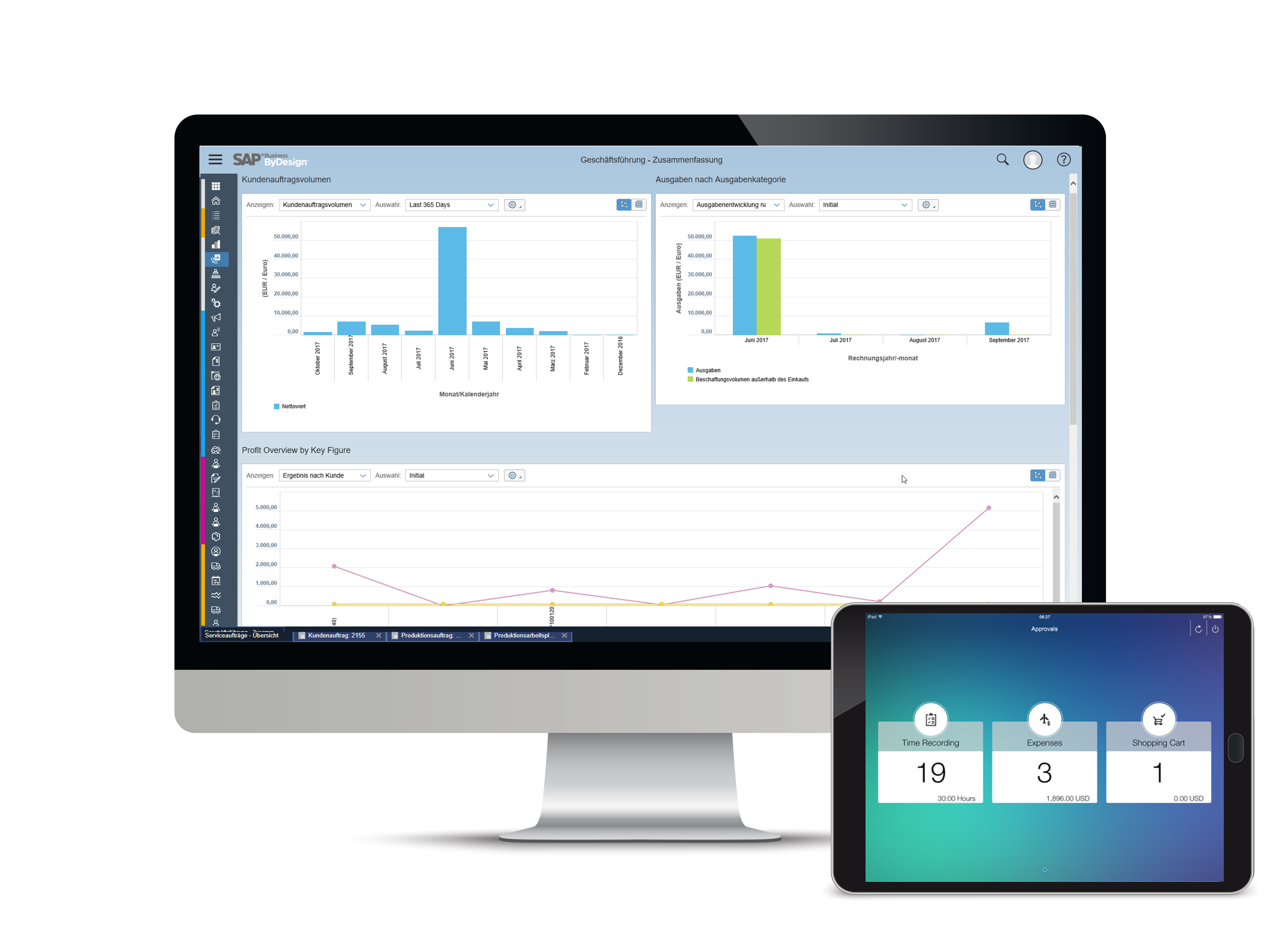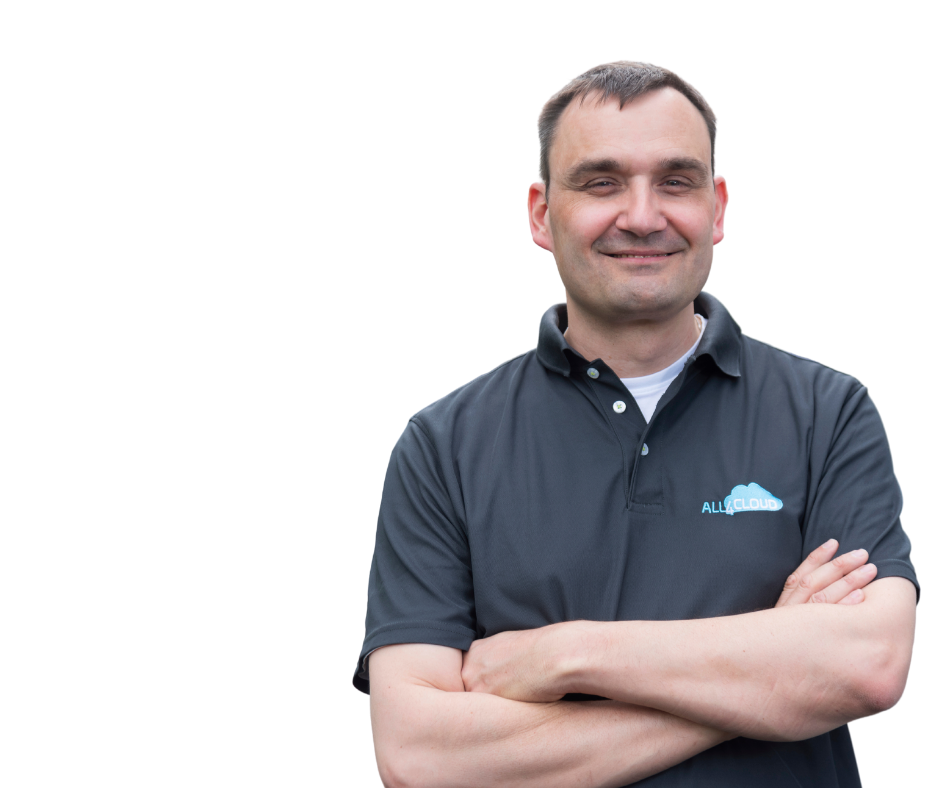SAP’s largest market share is with midsize companies. In particular, its cloud ERP services offer fast-growing SMEs a scalable alternative to solutions developed for on-premises.
SAP used to be perceived essentially as a provider for large companies and the upper midmarket. The many systems available in the heterogeneous Swiss ERP market were better suited to the typical SME customer, it was said everywhere. However, the use of SAP Cloud solutions in particular has changed the picture in recent years. In any case, one thing is certainly true: There is a considerable number of Swiss ERP solutions that are still used locally. They are installed in large numbers and definitely have their place in the market.
In the discussion about whether Switzerland is an SAP country or not, no distinction is usually made between the manufacturer’s individual solutions. But SAP and its partners, whose role for SMEs will become an issue later, have more in their portfolio than S/4HANA. Nevertheless, the latter is often equated with SAP ERP. However, SAP offers three ERP suites for different needs and company sizes. Because many reasons speak for cloud systems, this is the focus here.
- SAP S/4HANA Public Cloud:
The solution was designed for companies with a very comprehensive process depth. Companies with up to exponential business and data growth continue to rely on this solution from the very beginning. - SAP Business ByDesign:
This unified cloud ERP is designed for midsize companies and is characterized by its simplicity and consistency of operation. It has been available on the market for more than ten years, was developed for the Public Cloud and accordingly brings with it all the advantages of a Software-as-a-Service (SaaS) solution. This includes, for example, easy scalability, which is crucial for companies growing rapidly nationally or internationally. Suitable for companies with between five and an open-ended number of users, the service connects all of a company’s business units, including global ones, on the basis of proven best practices and an integrated end-to-end analytics engine. - SAP Business One Cloud:
The hosted (Private Cloud) ERP is suitable for micro companies from one to approximately ten employees that want to say goodbye to Excel or solutions that are not integrated end-to-end and want to manage all business areas with one solution and uniform, end-to-end processes.
Audited industry processes and best practices
So while S/4HANA is now too powerful for most global Swiss companies, Business One Cloud is not scalable enough for many. This is because it cannot be scaled to the next level without migration. Although the solution consistently relies on standard processes – an important prerequisite for scalability – nothing except the SAP data can be transferred to a new system. Therefore, a change from Business One to Business ByDesign is equivalent to a new implementation with the corresponding migration effort. Business ByDesign, on the other hand, offers one of the decisive advantages of a SaaS: its setup is such that a company can scale from five to several hundred or thousand users without having to introduce a new system. This gives the company great security for the future.
In addition, the standardization provides transparency, as the company works with industry processes that have been tested worldwide. Companies that want to grow and map new business models, on the other hand, cannot simply unlock additional functions with SAP Business One Cloud, as is the case with the true public cloud solution with modern architect. Furthermore, there is a large number of useful additional developments for SAP Business ByDesign. The midmarket customer can extend its business processes at any time in the standard or digitize them further beyond the standard using add-ons to open up additional business areas or customer segments. This can be crucial for production companies, for example, if they initially want to outsource service processes and offer them themselves at a later date. The processes are already created in the solution and only need to be activated. The ERP system grows with the company and thus represents an essential foundation for corporate growth. The “time to value” is reduced to a minimum.

Differentiation from ERP developed for on-premises
In this respect, the service differs significantly from most Swiss ERP solutions. Most of them were created around or after the turn of the millennium and were developed for on-premises. Accordingly, customer-specific adaptations are already hindering the path to the real cloud because of the architecture. In order to implement new business models, it is sometimes necessary to connect additional third-party solutions to the base – including interface problems. In this case, the 80/20 percent rule for Cloud solutions does not apply. In the case of ERP software developed for on-premises, the majority (80 percent) of the standard software does not meet the customer’s requirements, as is the case with solutions designed for the cloud from the outset, while only 20 percent is covered by additional development or integration. This can be seen when you look at the distribution of skills among software partners. Usually, consultants with process-related skills predominate at partners of SaaS providers, whereas the developer guild has the upper hand at classic ERP manufacturers.
However, ByDesign can do much more than generic processes such as for marketing, sales or finance and controlling. Most of what is contained in S/4HANA has already been created. This is important for project service providers, the life science industry, retail, but also for manufacturing companies with purchasing, production and warehouse management.
Internationally active SMEs
Business ByDesign is especially interesting for Swiss SMEs that are or want to be internationally active despite their small size. These innovative companies need to connect further companies, operating sites or warehouses in addition to the Swiss headquarters. Swiss ERP solutions usually only cover Swiss needs – for example in terms of processes or financial accounting. However, they reach their limits when it comes to intercompany accounting, distributed cash books and international accounting according to IFRS (International Financial Reporting Standard). This is because Swiss ERP manufacturers, who only supply customers operating in Switzerland, do not need this business logic.
Also of interest to international Swiss SMEs: SAP Business ByDesign can be integrated into the SAP S/4HANA Cloud network at the parent company in local branches or manufacturing sites. This is because in many locations, the companies do not need the full range of functions of the parent company, but still have access to the fully integrated and thus technically harmonized ERP data of the head office. In the branch offices, all business objects and processes can be easily accessed via hyperlinks. The solution is mainly distributed by partners and only implemented by partners. Within a worldwide network, the partners support each other with their local knowledge and industry skills. The focus on partners is a decisive selection criterion for many SMEs, as they work with a supplier at eye level.
Participation in global innovation
For a long time, the majority of medium-sized companies claimed to be unique in their processes. Accordingly, until not so long ago, the prevailing opinion in Switzerland was that an ERP had to reflect all of the company’s peculiarities and habits that had been ingrained over many years. Inquiries from the market, on the other hand, now show a clear change of opinion: while only around 20 percent asked for a Cloud ERP two or three years ago, according to our own observations, this figure has now risen to 70 to 80 percent. These companies have recognized the advantages of standard processes for their products, processes and IT.
Today, Swiss SMEs also want to benefit from the innovative power of Cloud providers who are constantly developing their solutions. And they appreciate the value of industry standards that have become established worldwide. Many have realized that they should no longer let individuality drive business decisions when procuring software. SaaS providers deliver complete processes that can be adopted and activated as desired. Users of true Cloud ERP therefore benefit not only from not having to make high investment costs in software and servers. They free up IT resources for new applications such as machine integration, artificial intelligence and many more. In this way, SMEs remain innovative in their own business field and benefit from the innovative power of the provider and manufacturer when it comes to ERP.
Source: Article published in Swiss IT Magazine 2022/07
Which challenges do you want to master?
Learn more about how SAP Cloud ERP can help your business in an ever-changing environment. Simple. Fast. Flexible.
Please use our contact form.
Send us an email to erp@all4cloudgroup.com.
Or just give us a call: +41 41 511 7521.
Our Cloud ERP expert is looking forward to your inquiry.
Best regards,
Wolfgang Kroener - CEO all4cloud Switzerland


